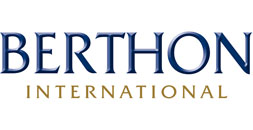Your Local Broker, Internationally
Berthon UK
(Lymington, Hampshire - UK)
Sue Grant
sue.grant@berthon.co.uk
0044 (0)1590 679 222
Berthon Scandinavia
(Henån, Sweden)
Magnus Kullberg
magnus.kullberg@berthonscandinavia.se
0046 304 694 000
Berthon Spain
(Palma de Mallorca, Spain)
Simon Turner
simon.turner@berthoninternational.com
0034 639 701 234
Berthon USA
(Rhode Island, USA)
Jennifer Stewart
jennifer.stewart@berthonusa.com
001 401 846 8404
VAT / Customs – A Brave New World
By Simon Anslow
Two years on and Brexit is starting to recede into the recesses of our memories. The intervening years have seen a pandemic, the 36th America’s Cup and three different prime ministers in the UK. Life has (sort of) returned to normal and we carry on with our daily lives. But what is that new ‘normal’?
As that Brexit memory becomes more distant, the effects and consequences of the UK’s departure from the EU are now starting to be seen – as we have previously reported, the news was not necessarily all bad and for some offered opportunity. So let’s have a look around at what we are seeing in this brave new world.
UK
Let’s start at home – for UK yacht owners and businesses, 2022 started well and full of optimism, following the announcement by HMRC that they were relaxing the 3-year rule for Returned Goods Relief (RGR). This is the mechanism that allows persons to bring goods back into the UK without the requirement to pay further VAT, provided certain conditions are met – primarily that the goods had to be brought back by the same person who had exported them (i.e. ownership cannot of changed), no significant change in value/condition (other than normal wear and tear and depreciation), the goods were in free circulation when they left (‘VAT Paid’) and they returned within three years of departure.
As a Brexit transitionary concession, HMRC had temporarily waived the time limit and allowed boat owners RGR where the three years had been exceeded, but this was due to cease at the end of June 2022, potentially leaving many UK yacht owners still unable to bring their yachts back to the UK. The formal change to the rules was a welcome relief – the other conditions still need to be met and the waiver of the time limit only applies to private use or ownership, not commercial owners, but a significant shift from HMRC that now provides certainty.
The mood music from HMRC was positive and there were high hopes that the bigger prize of the granting of a concession to UK owners who had pre-Brexit VAT Paid boats, but who had not previously been to the UK (thus ineligible for RGR) of some form of relief, being won.
The calling together for a meeting in December by the Treasury of the major stakeholders (RYA, British Marine, Cruising Association, ABYA et al) in lobbying for this ‘Repatriation Relief’ as it was unofficially dubbed, gave rise to further optimism and, indeed, expectation…but no; there was to be no fanfare, no rejoicing, no victory for common sense – simply a UK stark message imparted that the Treasury would not be taking the matter forward and the matter was now closed. No reasoning, no explanation, no right to reply!
On more mundane matters, but still important is the procedure for private pleasure craft arriving in or leaving the UK. There has been a longstanding requirement to complete and submit a C1331 to the National Yachtline / UK Border Force; however, up until late 2021 this was only available in a very non-user-friendly ‘hard’ copy format and with erratic compliance. 2022 saw the introduction of an ‘electronic’ version, that whilst quite clunky to use could at least be completed remotely and removed much of the stress of the task. The message has also been reinforced that this submission is mandatory.
Towards the end of the year, HMRC have further refined the process with the introduction of the on-line/interactive/dynamic ‘Submit a Pleasure Craft Report’ (sPCR) which effectively replaces the old system and allows for changes and updates to be made. However, don’t fret if you cannot or are unable to access the new process, the ‘old’ e-C1331 is still available to use, now snappily titled ‘The Pleasure Craft Report (sPCR) Fallback Template’…!
The position regarding the movement between mainland UK to and from Northern Ireland remains problematic for yacht owners and brokers. Whereas actual entry and departure procedures are fairly well covered by HMRC Notice 8, the treatment and understanding of VAT Paid Status, in particular for yachts that have been acquired and used within NI then being brought to the UK, (most importantly, for sale), is still causing confusion and concern. The recent Windsor Framework does not necessarily provide any clarity and the push for HMRC to provide definitive guidance continues.
Temporary Admission (TA)
One of the biggest changes facing UK owners using their yachts within the EU following Brexit has been the need to either demonstrate that the vessel is EU VAT paid (RGR-eligible) or entitled to use Temporary Admission (TA). This latter relief allows non-EU residents to use their yachts within the EU without having to pay VAT on the value, provided the boat is owned, registered and being used by someone that is established or ordinarily resident outside the EU and that the person using the yacht is doing so for private purposes – oh, and that they leave the EU within eighteen months of arrival.
The basic mechanism for yachts wanting to use TA is ‘declaration by conduct’ – this means that the mere presence of the boat in EU waters or a Member State is the declaration. However, this can be a double-edged sword – great for just dipping in and out or the casual foray, but for yachts that are going to remain within the EU for a more prolonged period, the lack of any substantive documentation – particularly when faced with an inquisitive Customs officer – can prove challenging.
This higher-level TA declaration is often referred to as the ‘Oral’ (due the original requirement to simply tell a Customs officer of your arrival) or ‘Article 165’ declaration, which involves a degree of formally reporting a boat’s arrival and being provided with an actual document confirming TA status. However, although the Union Customs Code (UCC) and its derogated Acts set out the principles to which all the EU Member States adhere, the on-the ground implementation can vary considerably.
By way of example:
- Spain – Is probably one of the best countries for obtaining an ‘Oral’ declaration; usually through a Customs agent, the declaration can be made remotely, on-line and results in a very useful, properly formatted confirmed declaration.
- Netherlands – As with Spain, a properly formatted Art. 165 document can be obtained, again best through a recognised Customs agent.
- Germany – Uses a variation of the Art. 165 document, which can be submitted online or in person.
- Italy – Referred to as Annex 71-1, this is the Italian’s version of the Article 165 and follows a similar format. However, submission and declaration is usually required to be made at the port of entry and it is advisable to use a local Customs agent. There can also be regional variations as to use, policy and protocol applied.
- France – Interestingly very difficult to obtain a formal TA acknowledgment when sailing in, owners often being referred to the ‘declaration by conduct’ rules, particularly in Northern France. However, Article 165 documents can be more easily obtained in the South of France and there is potential special treatment for new yachts (see to the right).
- Sweden – No formal mechanism for TA other than ‘by conduct’, but it is possible to utilise their arrival procedures for ‘commercial’ vessels, which will then provide official acknowledgement of arrival in the EU and usefully effective when cruising on elsewhere to other Member States.
Country Quirks
Our post-Brexit experience has taught us that as with the TA, there are inconsistencies between and quirks that may be specific to the different member states and immediately beyond. Some of those that we have found interesting – and in some cases, troubling:
France
With just about all EU countries (and also the UK), in order to acquire a yacht VAT-free, it is necessary for that boat to physically leave and be exported from the country (and territory) of supply. The acquirer can then return – having evidenced that export – under TA (if eligible). However, France does operate a mechanism whereby provided the supplier is established in France and the yacht being supplied is new, it is possible (subject to conditions) for the zero-rating to be applied, and for the yacht to be placed directly onto TA without the need for the boat to physically leave France.
Netherlands
Post-Brexit we have found the Dutch Customs to be uncharacteristically ‘narrow’ in their view and approach to the VPS of boats. In particular where the boat is non-EU flagged – we have encountered a number of circumstances where yachts that have demonstrable EU VPS through having (documented) presence within the EU. Worryingly, recent encounters have also highlighted the Dutch Customs’ ambivalence towards generally accepted ‘legitimate’ leasing schemes, with the VPS being challenged and necessitating detailed and lengthy discussions and reviews to support the validity of that status.
Italy
As with TA, there also appears to be inconsistencies with the treatment of export sales – the Italian tax authority issued a briefing document in 2016, which remains extant, that provided a simplified procedure that allows sales of new yachts to be zero-rated as exports, requiring only that they were removed 12 nautical miles offshore, utilised AIS tracking (or similar) with return under TA allowed. Many suppliers operate this mechanism, but there are also a worrying number of circumstances where some suppliers are insisting Country Quirks that non-EU clients must use a corporate entity to acquire the yacht and also provide a VAT deposit or guarantee, only to be released once the yacht has been exported, made landfall at a third country and satisfactory documentation has been provided – none of which are requirements under Italian VAT law.
Spain
There has been a degree of confusion within Spain as to whether VAT is chargeable or not on the provision of services and work carried out on yachts. Some of this is down to a misunderstanding of what is known as the ‘use and enjoyment’ rules and in other cases where there is lack of clarity as to whether the supply is one of good or services. The Spanish tax authority have attempted to clarify some aspects of this (primarily B2B supplies), but the concern remains that Spanish suppliers, possibly through fear of getting it wrong, are continuing to charge VAT in circumstances where this may not be correct.
Whilst everyone is playing to the same set of rules, how they are applying those rules may not be the same! The advice is:
- If you are looking to buy a used VPS boat, ensure that you undertake thorough due diligence and ensure that the transaction is carried out in a way that ensures that VPS is properly maintained
- If you are buying a yacht as a zero-rated export or one that needs to leave the EU before returning, check that the procedures and protocols are clearly understood before hand – particularly for the Member State(s) of departure and re-entry – and that those are followed and documented.
- If you are entering the EU under TA, be clear as to whether you need a more detailed procedure or formal declaration, check the country of entry for their requirements and the type of documentation provided and, in all cases, obtain and keep good, solid secondary documentation of movements (marina invoices, fuel receipts etc) and a detailed log book.
Welcome to the new normal!



